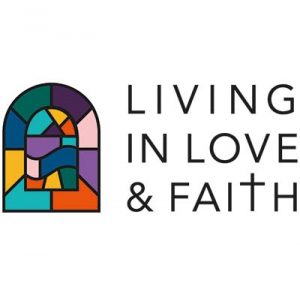Bishops share thoughts on February’s General Synod
We have just left General Synod and write to share our thoughts.
 Although the focus was clearly on the bishops’ response to Living and Love and Faith (LLF), other crucial work was also done this week, in particular an important Safeguarding report and a strong statement, unanimously approved by Synod, on the cost of living crisis, which you can read about it in a Church Times article here. With this in mind, we return to Cornwall deeply grateful for the self-sacrificial work that many of you are doing in your communities as the tidal wave of need grows.
Although the focus was clearly on the bishops’ response to Living and Love and Faith (LLF), other crucial work was also done this week, in particular an important Safeguarding report and a strong statement, unanimously approved by Synod, on the cost of living crisis, which you can read about it in a Church Times article here. With this in mind, we return to Cornwall deeply grateful for the self-sacrificial work that many of you are doing in your communities as the tidal wave of need grows.
The debate on Living in Love and Faith focussed on the response written by the bishops following 5 years of shared learning and discernment through the LLF process. You can read that document here. The debate began on Wednesday afternoon and continued for 9 hours of discussion, question and amendment, finishing at lunch time on Thursday.
Synod members expressed profoundly held views on subjects of the utmost significance in a tone that was consistently generous and graceful – so much so that Ben Bradshaw MP, who has been vocal on the topic of same sex marriage and who was following the debate, commented ‘Parliament could learn a lot from the civility, quality and efficiency of the debate.’
There were a wide range of amendments tabled during the debate, each of them voted on by the 470 Synod members who are grouped in three ‘Houses’; lay people, clergy and bishops. These amendments gave Synod the opportunity to discuss, often passionately and robustly, a full range of perspectives and opinions. Amongst these views, two things were clear; first, that we are very deeply divided as a church and second, that we are deeply committed to sticking together across our deep differences – and both are true at the same time.
We recognise that this unity and division are present amongst us in our diocese
We recognise that this unity and division are present amongst us in our diocese. Speaking in the debate, Philip said: ‘I value deeply the unity of the church; a unity that we value very deeply in the Diocese of Truro. Being small, culturally and geographically distinct helps us in that. But it’s not just accidental, it is a unity that we share above all in Christ.’
We return from Synod fully committed to this unity, knowing that sticking together when we disagree profoundly is demanding and sometimes painful, but that it is a gift from God, a calling for all followers of Jesus and a fruit of God’s grace and mercy.
We both supported the final motion, including its very significant amendment, which was passed by Synod, although on very small majorities in the Houses of Clergy and Laity. This decision is a significant step for the church, but one which requires the bishops to do more work on the prayers of love and faith, on the pastoral guidance which will accompany them and on the provisions that will be needed, especially by clergy, to ensure their freedom of conscience, whether or not they choose to use the prayers, is assured. We all need to pay careful attention to the fact that the Church we love is deeply divided on this issue.
Philip finished his speech with these words, ‘I will support this motion as I believe it enables me to hold on – not always comfortably – to my twin commitments to the doctrine of marriage and the unity of the Church. It is, as it were, a discomfort with which I am comfortable.’ Choosing the discomfort of holding together what seems irreconcilable is, perhaps, a particular calling before us all at the moment. If we can continue to walk together in love and faith, acknowledging our profound differences while refusing the lure of division, we will bear witness to something truly counter-cultural. We pray that it may be so.
This comes with our gratitude for the unity we already enjoy in the diocese, and in prayer for an even greater depth of love for God, one another and the communities we are called to serve.
With every good wish, in Christ
